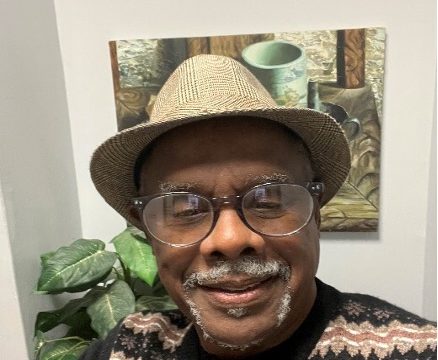
“Neal” wrote: “Terry, I liked your recent piece on the Israel-Hamas conflict. But asthe saying goes, ‘there are two sides to every coin.’ So as a Black person, I hope you’ll balance that one with an African American perspective on Palestine. I suppose I shouldn’t hold my breath until you do, huh?”
Duly noted Neal. And thanks for your, eh, “vote of confidence.”
A few days after Neal’s email – while comfortably ensconced in my favorite chair -I scrolled my TV channels in search of an “Andy of Mayberry” episode I’d recently recorded, a search that was interrupted when I came across a heated interview with journalist Piers Morgan and a Palestinian guest, he too a journalist.
The subject? Well, you guessed it – media coverage of the plight of Palestinians during the Israeli-Hamas war.
With that “exchange” (if one could call it that) I recalled that recent email from Neal coupled with front page news of a 19-year-old Black student at a prestigious HBCU school who launched a campaign supporting the innocent war victims in Palestine. It also got me thinking about gaps in my own knowledge and my rarely thought about similarities between the historical experiences of Palestinians and Black folks in America.
Now if coincidence – or perhaps a wakeup call – would further have it, I came across a compelling article, “Why American Black Folk Support Palestinians,” by photographer and writer Johnny Silvercloud. Following are some salient points from his article, including a quote from American minister and prominent human rights activist Malcolm X:
“A lot of folks are wondering how and why Black people of America speak out in the defense of Palestinian people. I’m going to explain.
While I’ve been documenting protests and street engagement for a long time, my most well-known work is from the George-Floyd-Breonna Taylor-Ahmaud ArberyBlack Lives Matter protests of 2020. So, without question, I was there. The whole time. So believe me when I tell you that Palestinian people have been showing up in defense of Black people for a very long time.
Palestinians know and understand the struggle of Black people, especially Afro-Americans. Palestinians can well argue that their struggle is worse than ours, but they never do because they view our two struggles as parallels.
When we as Black people talk about police brutality and their lack of accountability, Palestinians understand us thoroughly, as they have the same problem, if not worse, with Israeli occupational forces. Israeli occupational forces pretty much give Palestinians a George Floyd situation every other month of the year. So when we speak about racism in the American police force, they are the first people who understand what we are talking about.
Palestinians also understand what it feels like to have no (effective) political power, just like Afro-Americans here in the States. Being Palestinian everywhere is like being Black everywhere.
Palestinians are a people, not a religion. There are also Palestinian Christians, for example. Another fact is that there are Black Muslims around the world and some Palestinians are Black. (Here’s the Malcolm X quote that’s imbedded in Silvercloud’s article):
“The Palestinian struggle is not just a cry for justice. It’s a blistering battle for the most fundamental human rights that every living soul on this planet should inherit by birthright. It’s an unyielding resistance against the oppressive suffocating grip of occupation and the callous denial of the most basic human dignity. Just as the civil rights movement in the United States fought against the chains of racial discrimination, so too do the Palestinian people strive to shatter the chains of occupation and tyranny. Never forget my friends that the Palestinians, much like African Americans in the United States, have been subjected to a heart-wrenching history of suffering and torment.
The situation in Palestine serves as a brutal reminder of the consequences of colonialism and the ruthless dispossession of Indigenous people. It is an agonizing reminder that the fight for justice knows no borders, and we must stand united in solidarity with all oppressed peoples whether they reside in the United States, South Africa, or anywhere around the world.
Let’s be unequivocally clear: Advocating for the rights of the Palestinian people is not synonymous with denying the rights and security of the Jewish people. We must remember that numerous Jewish voices also resound in the calls for justice and peace in Palestine, and their voices must not be silenced. In our relentless pursuit of justice for the Palestinian people, we must also acknowledge that it is in the best interest of the entire world to seek a just and enduring solution to the Israeli-Palestinian conflict. It is a pursuit in the name of peace, stability, and the dignity of all mankind.
But let me underscore this: the battle for justice in Palestine is not merely a political struggle. It’s an elemental moral battle. It’s the fight for the most basic human rights of the people who have suffered these injustices for far too long. It’s the fight for the right to exist in peace and security, free from the ceaseless specter of violence and dispossession. ~ Malcolm X
Now if you didn’t know what you know now, particularly if you didn’t know (or forgot) that Malcolm X died almost 60 years ago, you may have concluded that he uttered these words in the aftermath of October 7. Let that sink in for a moment.
I close this piece with a note of thanks to Neal.
Hey Neal….now feel free to exhale!
Terry Howard is an award-winning writer and storyteller. He is a contributing writer with the Chattanooga News Chronicle, The American Diversity Report, The Douglas County Sentinel, TheBlackmarket.com, co-founder of the “26 Tiny Paint Brushes” writers guild, recipient of the 2019 Dr. Martin Luther King, Jr. Leadership Award, and third place winner of the 2022 Georgia Press Award.


